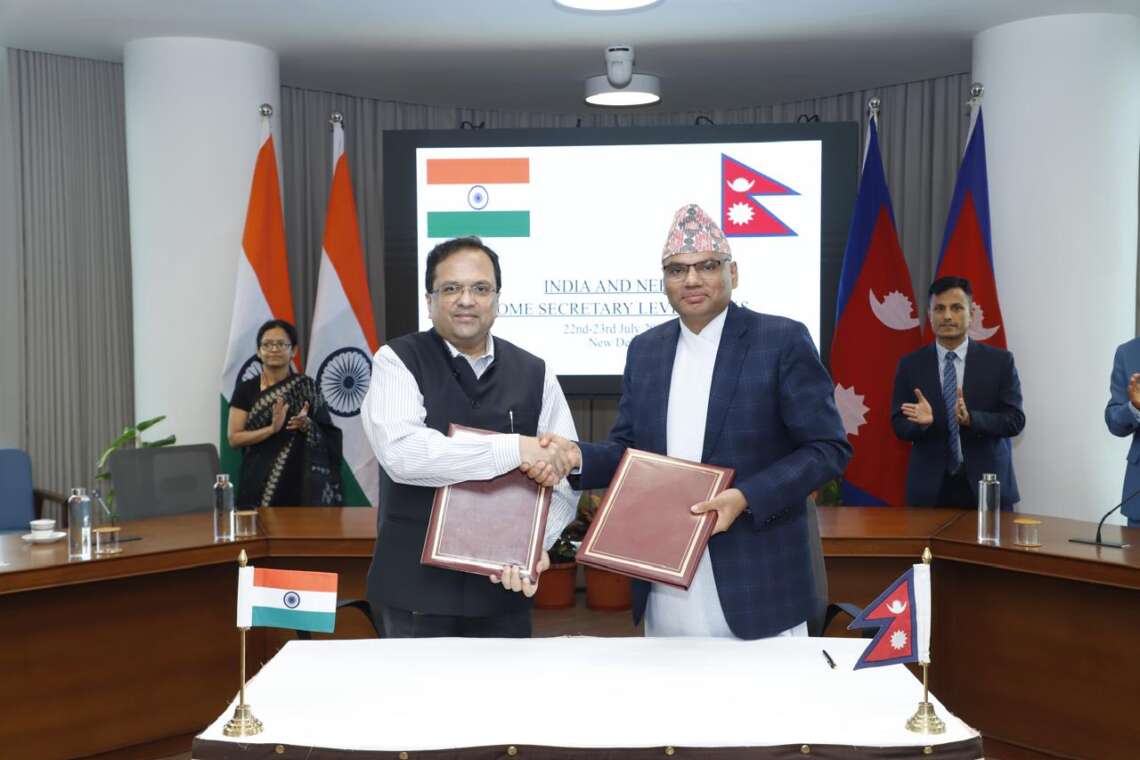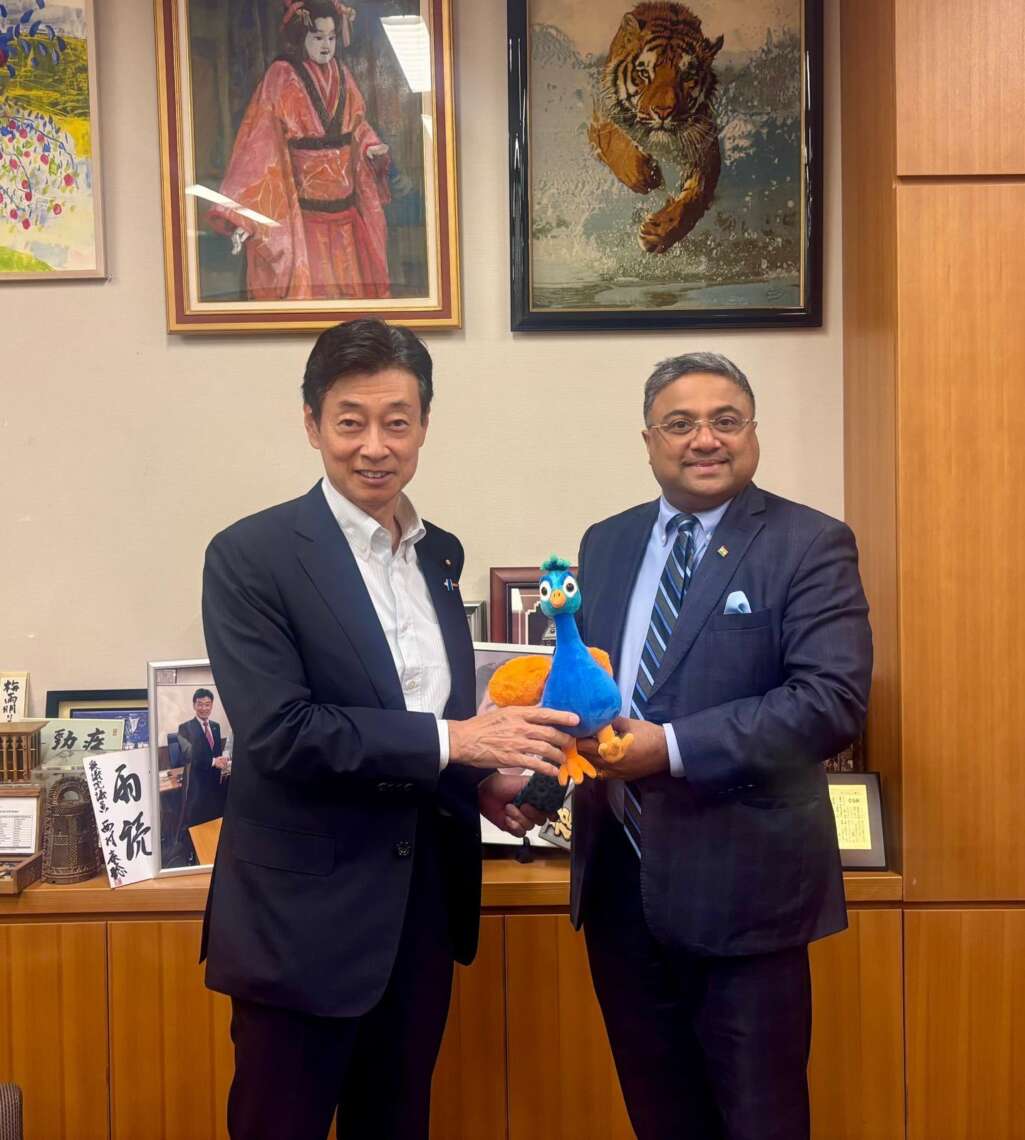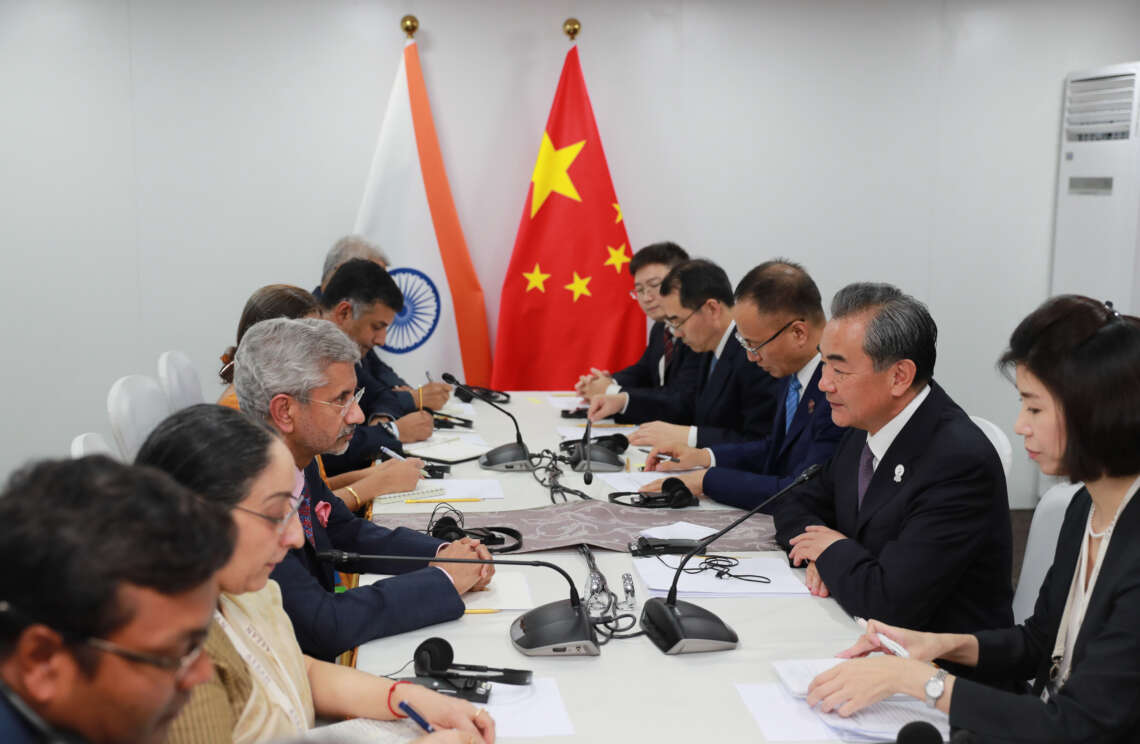A Home Secretary-level dialogue was held in New Delhi, where both sides conducted an extensive review of the entire range of security and border management issues….reports Asian Lite News
India and Nepal have reaffirmed their commitment to strengthening border security, improving infrastructure, and fostering deeper bilateral cooperation across multiple sectors, following high-level meetings in New Delhi and Kathmandu this week.
At the heart of these developments was the Home Secretary-level dialogue held on July 22 in New Delhi, where both sides conducted an extensive review of the entire range of security and border management issues. The Indian delegation was led by Govind Mohan, Home Secretary of India, while Gokarna Mani Duwadee, his counterpart from Nepal, headed the visiting team.
According to an official statement from India’s Ministry of Home Affairs, the meeting resulted in several key outcomes aimed at curbing trans-border criminal activities, improving disaster response coordination, and enhancing critical border infrastructure.
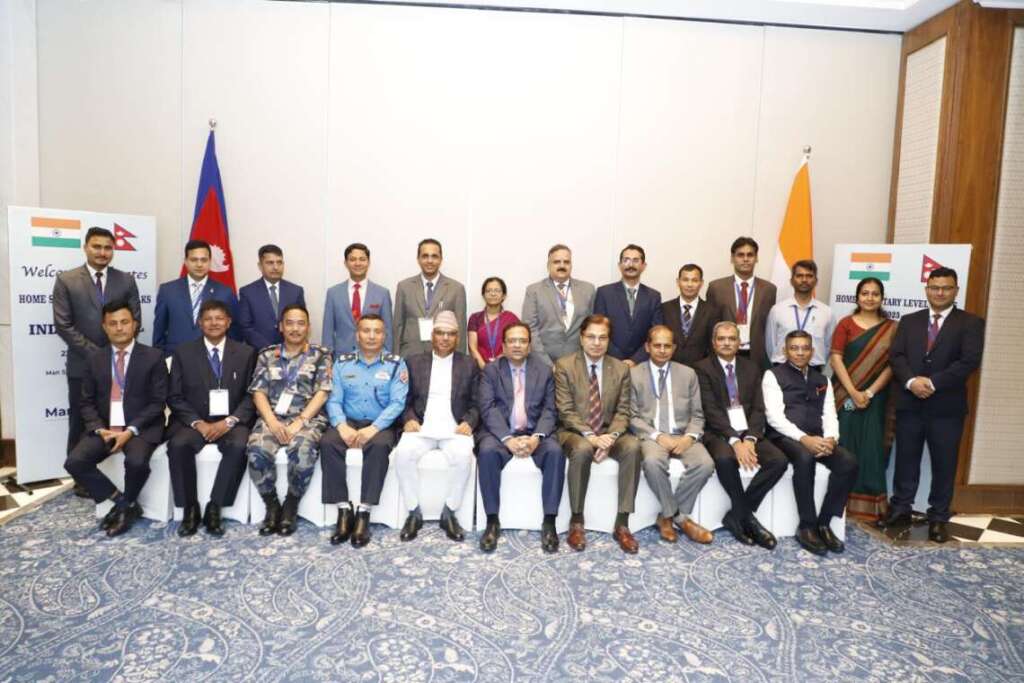
Key Security Initiatives
“Both sides reviewed the entire gamut of bilateral security cooperation as well as border management and agreed to strengthen it further,” said the Ministry.
Among the issues discussed were the repair and maintenance of boundary pillars, which play a critical role in delineating the India-Nepal border, and tackling trans-border criminal activities, a growing concern in border regions.
Discussions also covered the Border District Coordination Committees, which serve as important institutional mechanisms to resolve localised issues promptly. Efforts are now being made to boost the infrastructure of Integrated Check Posts (ICPs), expand road and railway connectivity, and improve the institutional capacity of border security personnel.
Notably, both sides welcomed the finalisation of the text of a long-awaited Agreement on Mutual Legal Assistance in Criminal Matters, a crucial step toward improved judicial cooperation. Both countries have also agreed to expedite the revised Extradition Treaty, a move that could significantly enhance law enforcement coordination.
The next round of Home Secretary-level talks is expected to take place in Nepal, at a date to be mutually decided.
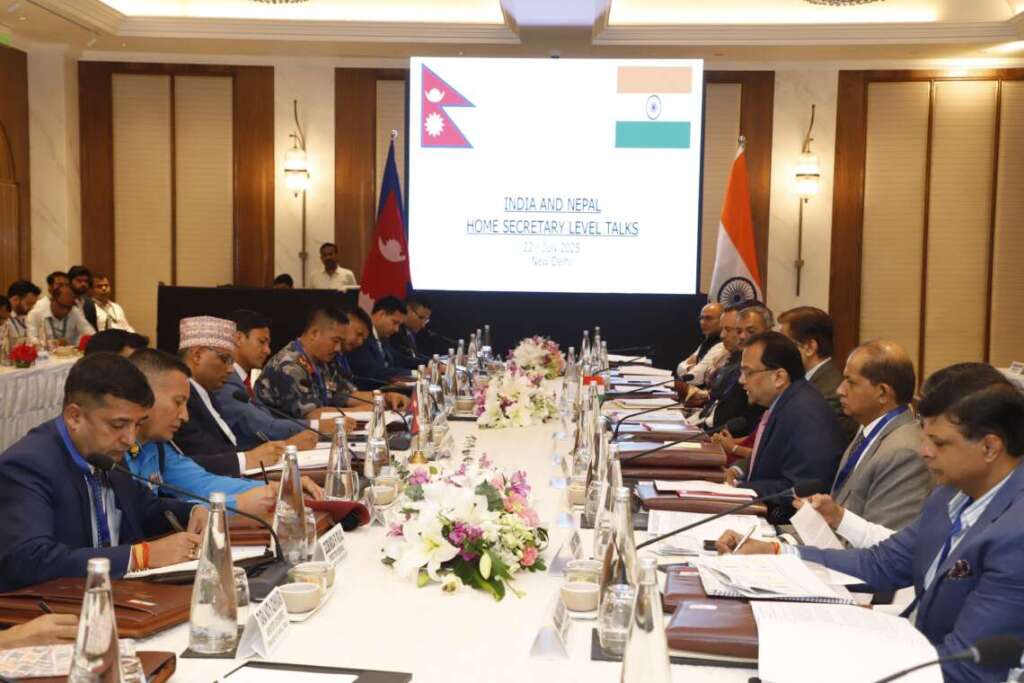
Community Development Projects
In a separate but related development, the Embassy of India in Kathmandu, in collaboration with Nepal’s Ministry of Federal Affairs and General Administration, signed Memorandums of Understanding (MoUs) on July 22 for the implementation of five High Impact Community Development Projects (HICDPs) in Nepal. These projects are being financed through grant assistance from the Government of India, with a total outlay of NPR 390 million.
The initiatives include the construction of school buildings, hostels, libraries, and a 5-bed hospital in districts across Nepal—ranging from Dhanusha and Parsa in the south to Achham and Manang in the far west and north. Local municipal and rural authorities will oversee the execution of these projects.
“These projects are not just infrastructure—they are enablers of opportunity,” said a spokesperson from the Indian Embassy. “They reflect India’s enduring commitment to grassroots empowerment in Nepal through targeted interventions in health and education.”
Since 2003, India has supported 579 community development projects in Nepal, of which 496 have been completed. The rest are in various stages of execution. These projects span a wide range of sectors including drinking water, connectivity, sanitation, and public utility creation, reaching every one of Nepal’s seven provinces.
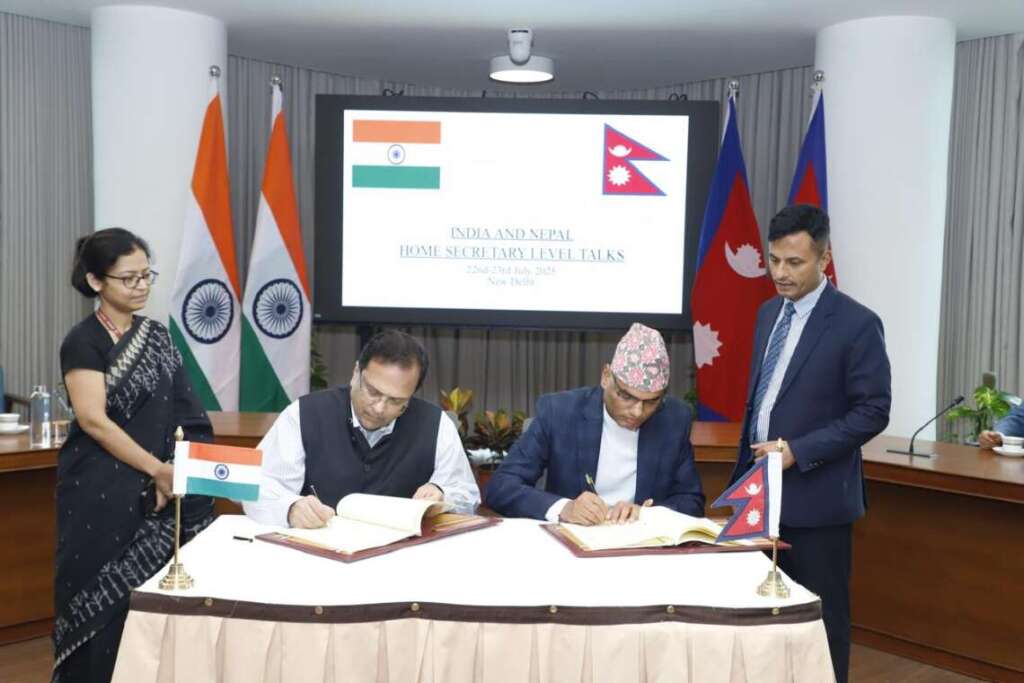
Cricket Diplomacy
Adding a cultural and youth-oriented layer to the bilateral relationship, cricket cooperation between India and Nepal has emerged as a vibrant form of diplomacy.
The BCCI Centre of Excellence in Bengaluru is set to host the Nepal Men’s National Cricket Team from August 20 to September 4 for a high-performance training camp ahead of the ICC Men’s T20 World Cup Qualifiers in Oman later this year. The initiative is supported by the Government of India and signals the growing institutional collaboration between the Board of Control for Cricket in India (BCCI) and the Cricket Association of Nepal (CAN).
This is not the first such instance. In April–May 2025, Nepal’s Women’s National Team held a camp in Delhi before making it to the finals of the ICC Women’s Asia World Cup Qualifiers in Thailand. India has also facilitated numerous training programmes and exposure tours for Nepali U-19 cricketers, including a recent month-long training programme in Bhopal for three young talents.
Back in 2013, India gifted a team bus to the Nepal cricket board, and in October 2023, the Indian Embassy provided professional equipment to the men’s team via the B P Koirala India-Nepal Foundation and public sector giant SJVN Ltd.
In January 2024, External Affairs Minister S. Jaishankar met with CAN representatives and players from Nepal’s national squad, personally reiterating India’s commitment to nurturing cricket in the Himalayan nation.
From strategic-level dialogues on law enforcement and border infrastructure to grassroots development and youth engagement through sports, the week’s developments highlight the deepening multidimensional ties between India and Nepal.
While border cooperation remains vital to mutual security, the broader message from both governments is clear: India-Nepal ties are no longer just about policy—they are about people, partnership, and shared prosperity.


